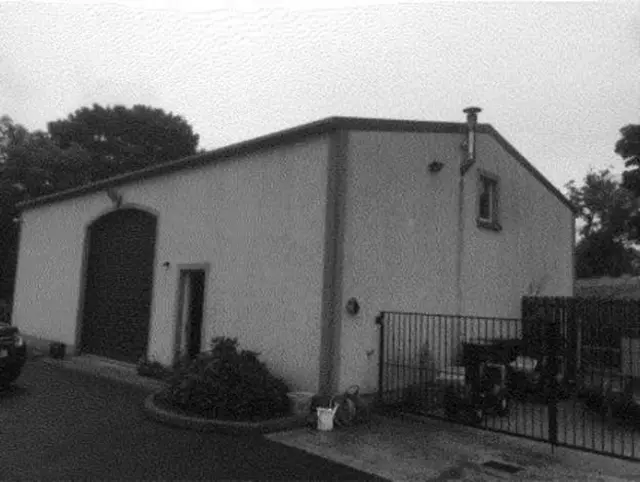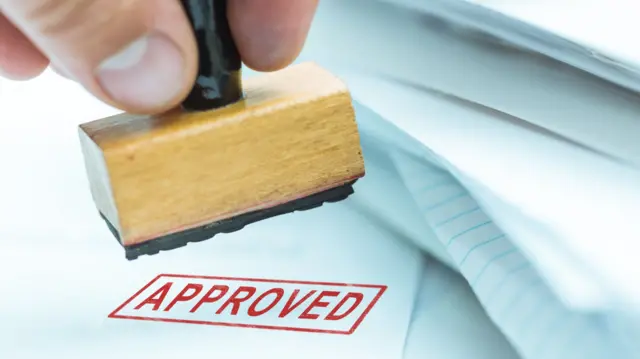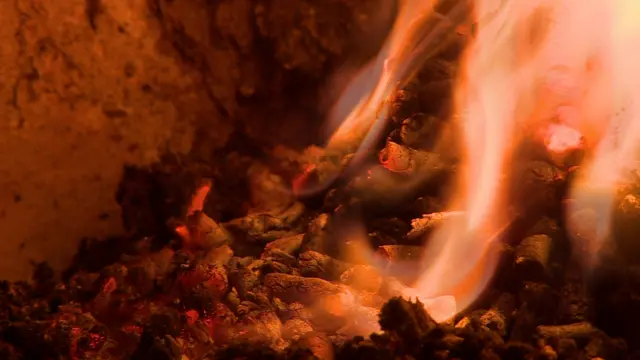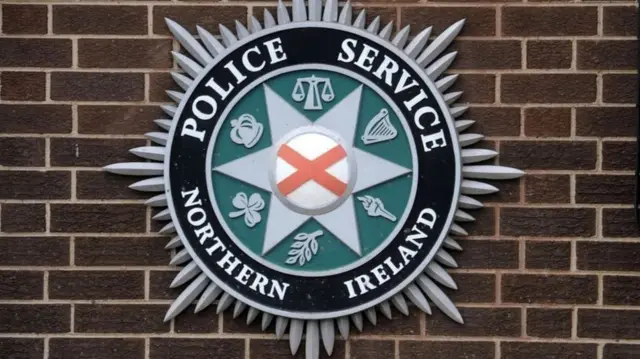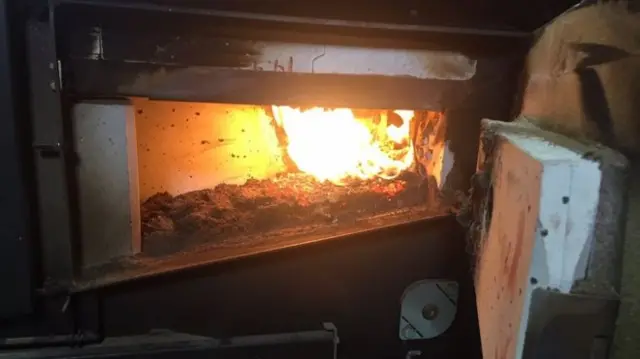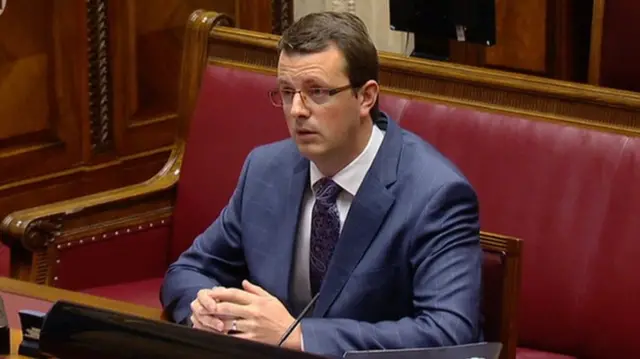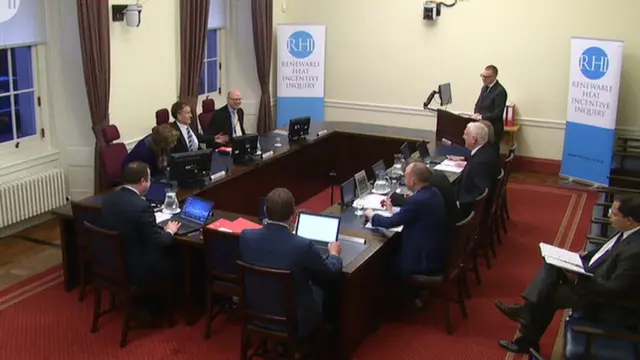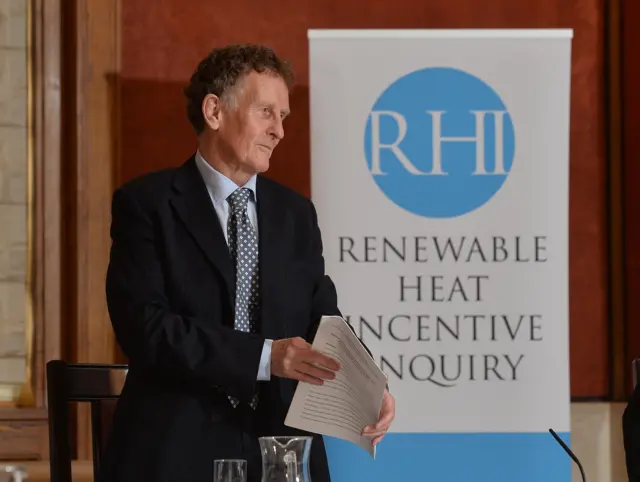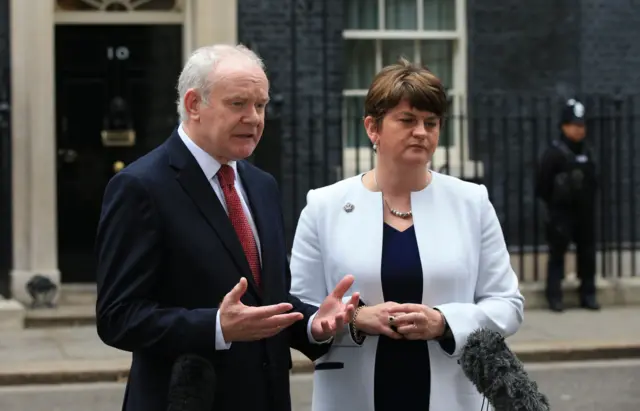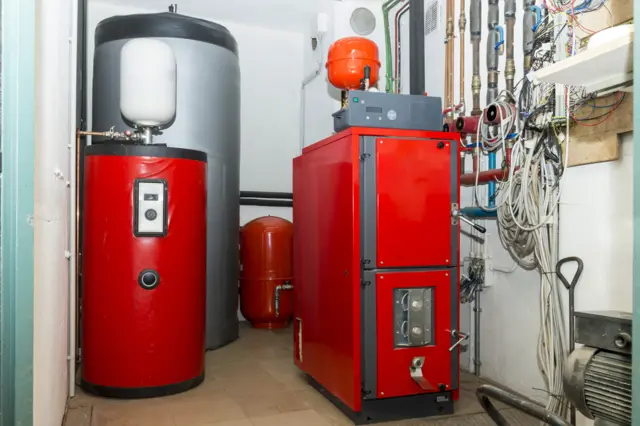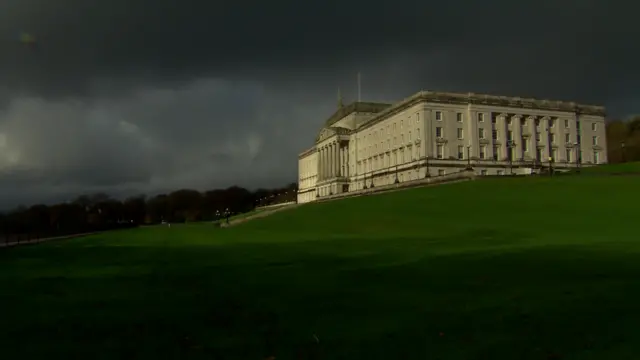Ofgem begins making its closing statementpublished at 12:40 GMT 12 December 2018
Now, to the first of the closing statements - Jason Beer QC (below) is representing Ofgem.
It has already provided the inquiry with a detailed submission in writing, which you can find here, external.
Mr Beer says he'll use this time to highlight some of the key aspects of that closing submission.
 Image source, RHI Inquiry
Image source, RHI InquiryHe'll address three main issues. They are:
- The failings Ofgem has admitted to the inquiry
- The main causes of the RHI scheme's overspend
- The work Ofgem is doing to improve in the administration of the scheme
But he won't be going into any comment on the information Joseph Aiken has revealed about Ofgem's handling of its investigation into ex-DUP adviser Stephen Brimstone because it needs "careful reflection".
